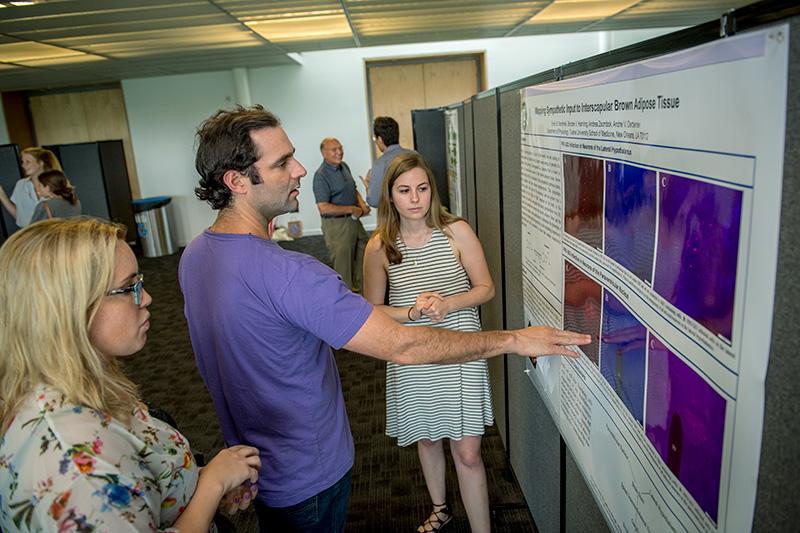Neuroscience majors TURN to research
For 10 years, the Tulane Undergraduate Research in Neuroscience (TURN) program has provided promising students with an in-depth introduction to brain research.
The summer program was founded by professor of psychology Gary Dohanich, professor of cell and molecular biology Jeff Tasker, and Beth Wee, associate dean for undergraduate programs in the School of Science and Engineering. It was created as an opportunity for undergraduates to gain hands-on lab experience with guidance from graduate students and faculty members.
Working side-by-side with neuroscientists, participants developed essential skills, including data analysis and experimental design, while receiving feedback from peers and advisers in weekly group sessions.
“They are part of a cohort that shares the frustrations, concerns and joys that come from doing research.”
— Beth Wee, associate dean for undergraduate programs in the School of Science & Engineering
“Our students gain valuable experience conducting empirical research and giving oral and poster presentations,” said Wee. “They are part of a cohort that shares the frustrations, concerns and joys that come from doing research.”
The experience culminated in a poster session modeled after a formal academic conference, where students like Tulane senior Matthew Coleman presented their findings to an audience of peers, faculty, graduate students and program alumni.
Coleman, a neuroscience major, was mentored by assistant professor of psychology Julie Markant while developing his project, titled “The Interaction of Positive Prediction Error and Active Learning on Memory.”
Coleman says that active learning is defined by control over one’s learning environment. He is studying how the concept works in tune with prediction error — the primary mechanism in which the brain encodes rewards.
His project builds upon a visual memorization test developed years ago by Markant’s brother, Doug Markant, an assistant professor of psychology at the University of North Carolina at Charlotte.
“The experiment requires participants to memorize images in different locations on a computer screen,” said Coleman. “Participants are divided into two groups to compare different forms of learning.”
Coleman is hypothesizing that positive prediction error will facilitate the benefits of active learning on memory.
Like this article? Keep reading: No problem is too big for Tulane students to solve

